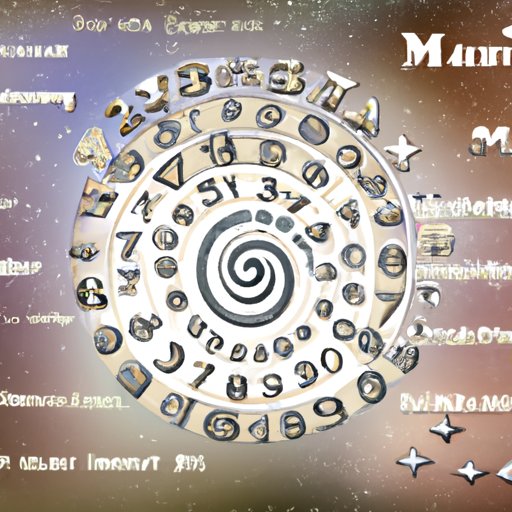Introduction
Numerology is defined as “the study of the occult significance of numbers” and is believed to be a form of divination that has been practiced for centuries. In this article, we will explore the evidence to determine if numerology is a legitimate science. We will examine claims and their support, explore the world of numerology, and look at the benefits and drawbacks of a numerology-based approach to life.
Examining the Evidence: Is Numerology a Legitimate Science?
When examining the validity of numerology, it is important to consider both its proponents and opponents. Proponents of numerology believe that numbers have a special significance and can provide insight into our lives. They point to ancient texts and spiritual traditions as proof of the power of numbers. Opponents of numerology argue that there is no scientific basis for the practice and that it is nothing more than superstition.
Exploring the World of Numerology: What Does the Research Say?
To better understand the validity of numerology, it is important to examine the research that has been conducted on the subject. Studies have been conducted to assess the relationship between numbers and personality traits, as well as the potential for using numbers to predict future events. While some of these studies have yielded interesting results, the majority of them have not been able to establish a clear link between numbers and any particular phenomenon.
In addition to examining the research, it is also important to consider the common themes that emerge from studies of numerology. Many of these studies focus on the use of numbers to gain insight into the human experience. For example, some studies suggest that certain numbers may be associated with certain personality traits or life events. Other studies suggest that numbers can be used to make predictions about the future.
A Brief History of Numerology and Its Place in the Scientific Community
Numerology has a long history, dating back to ancient times. It is believed that numerology was first developed by the Babylonians and Egyptians, who used it to divine the future. Over time, numerology became more popular and began to be used in various cultures around the world. Today, numerology is still widely practiced, although it is often dismissed as superstition by the scientific community.
Despite its lack of acceptance in the scientific community, numerology has found a place in popular culture. Numerous books and websites are dedicated to the practice, and many people use numerology to try to gain insight into their lives. While most scientists do not believe that numerology is a legitimate science, they do acknowledge that it can be an effective tool for self-discovery.
The Benefits and Drawbacks of a Numerology-Based Approach to Life
Numerology can offer many benefits, including providing insight into one’s personality and life path. It can also help individuals make decisions and find clarity in uncertain situations. Additionally, numerology can be used to identify patterns in events and understand the influence of numbers on our lives.
However, there are also drawbacks to a numerology-based approach to life. For instance, numerology relies heavily on intuition and does not always provide concrete answers. Additionally, because numerology is based on subjective interpretations, it is difficult to verify the accuracy of the results. Finally, relying too heavily on numerology can lead to unrealistic expectations and an unhealthy obsession with numbers.
Numerology as a Tool for Self-Discovery
While numerology may not be a legitimate science, it can still be a useful tool for self-discovery. By looking at numbers in a different way, individuals can gain insight into their personalities and life paths. Additionally, numerology can be used to uncover patterns in events and explore the relationships between numbers and the universe.
Numerology can also be used as a tool for understanding the world around us. By studying the symbolism of numbers, we can gain a deeper understanding of our environment and the forces that shape our lives. Ultimately, numerology can be an effective tool for personal growth and exploration.
Conclusion
In conclusion, the evidence suggests that numerology is not a legitimate science. However, it can still be a useful tool for self-discovery and exploring the universe. By examining the research and exploring its origins, we can gain a better understanding of numerology and its place in the scientific community. While numerology may not be a reliable method for predicting the future, it can still offer valuable insight into our lives and the world around us.
(Note: Is this article not meeting your expectations? Do you have knowledge or insights to share? Unlock new opportunities and expand your reach by joining our authors team. Click Registration to join us and share your expertise with our readers.)
